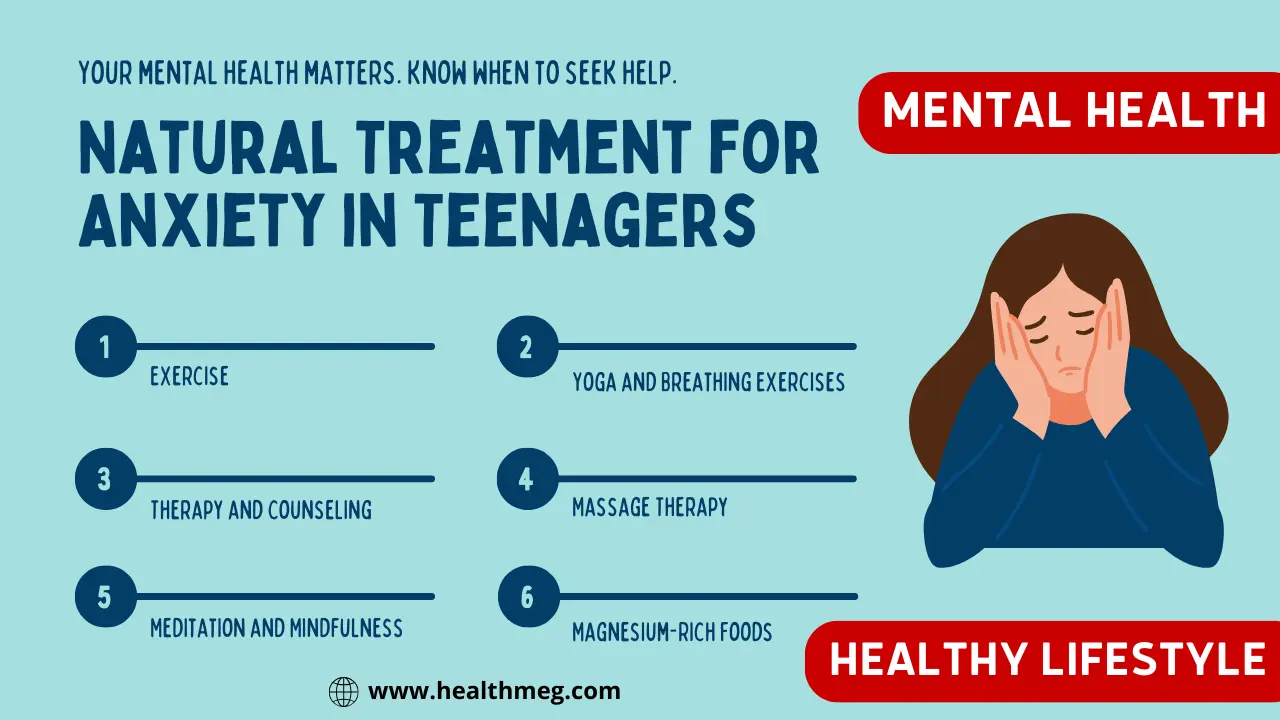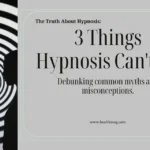Introduction
Betrayal trauma is a deeply distressing form of trauma that occurs when someone we depend on and trust intimately violates that trust. The wounds of betrayal trauma can be difficult to recognize and acknowledge within oneself. This guide will explore the many symptoms of betrayal trauma, its psychological impacts, and – most importantly – the path to healing and reclaiming wholeness.
The article “DO I HAVE BETRAYAL TRAUMA? 26 SYMPTOMS” discusses sensitive topics, including emotional and psychological abuse, infidelity, and self-harm. Please proceed with caution and prioritize your well-being.
Do read the People Also Ask (FAQs) about this topic.
Key Takeaway
- Betrayal trauma stems from severe violations of trust by someone close to the victim, damaging their sense of security. Common causes include infidelity, abuse, abandonment, bullying, or lying by an intimate partner, family member, or trusted person.
- Symptoms span the emotional, physical, cognitive, and behavioural realms. They include numbness, grief, anger, anxiety, dissociation, relationship issues, sleep disturbances, flashbacks, and self-destructive behaviours.
- Impacts include PTSD, depression, difficulty trusting, codependency, and self-harm. Seeking professional support is crucial.
- Healing begins with self-compassion. Helpful steps include identifying triggers, building coping skills, joining support groups, considering therapy, setting boundaries, and practising mindfulness.
- Recovery aims to integrate the trauma into one’s life story with new understanding. Rebuilding trust in oneself and others is gradual. Forgiveness is for the victim’s benefit when ready.
- Resources like hotlines, therapists, support groups, and spiritual communities guide you through the healing journey. With time, strength, and support, wholeness and trust can be reclaimed.
Causes of Betrayal Trauma
Betrayal trauma can arise from various traumatic violations of trust perpetrated by someone close to the victim. While individual experiences differ, some common causes and scenarios that can precipitate betrayal trauma include:
- Infidelity or romantic betrayal by a spouse or intimate partner
- Sexual abuse or violation by a family member, caregiver, or other trusted person
- Physical or emotional abuse by a parent, relative, or friend
- Bullying or harassment by someone in a position of power over the victim
- Abandonment by a primary caregiver or loved one
- Lying, manipulation, or gaslighting by a partner
- Financial exploitation or stealing by a family member
- Revealing deeply personal secrets told in confidence
- Witnessing a disturbing event and then having it covered up
- A religious leader taking advantage of followers
- Discrimination or abuse of power by an institution or community one belongs to
The core trait underlying betrayal trauma is a severe breach of trust by someone on whom the victim depended for their safety and wellbeing. The closer the relationship and higher the degree of trust that existed before the betrayal, the more damaging the traumatic impacts tend to be. Seeking professional support can help cope and recover.
DO I HAVE BETRAYAL TRAUMA? 26 Symptoms of Betrayal Trauma
Betrayal trauma can manifest in various ways across emotional, physical, cognitive, and behavioural realms. Being aware of the range of symptoms can help identify betrayal trauma in oneself or a loved one. Some key symptoms include:
Emotional Echoes:
- Shock and Numbness: Feeling emotionally numb and disconnected is a natural response to help you cope initially. When you are ready, the emotions will come. Be patient and kind to yourself.
- Sadness and Grief: Waves of profound sadness are to be expected as you mourn what you thought was real. Allow yourself to fully grieve in whatever ways feel right for you.
- Anger and Rage: The fiery anger you feel shows you know you deserve better. Channel it to empower and protect yourself, not harm yourself further.
- Shame and Guilt: If shame creeps in, remember – the betrayer wants you to feel flawed. But you know your true worth.
- Fear and Anxiety: It’s understandable to feel afraid as your sense of safety is shaken. Gentle courage will return in time as you regain your inner compass.
- Hypervigilance and Distrust: Being on high alert and distrusting is your mind’s way of protecting you right now. Balance it by staying anchored in the present.
Physical Manifestations:
- Sleep Disturbances: Your mind is working hard to process this trauma. Rest will come, but be patient for now and get what sleep you can.
- Body Aches and Pains: Physical pain can arise from emotional hurt. Listen carefully to what your body needs and lovingly provide it.
- Loss of Appetite or Changes in Eating Habits: Nourish yourself with care and compassion, even if food has lost appeal. You deserve to be well-fed.
- Changes in Libido: Your sexuality may feel disconnected right now, but in time you can reclaim it, defined by your terms alone.
- Substance Abuse: Though it temporarily numbs the pain, it ultimately prolongs the suffering. You have the inner strength to withstand the darkness.
Cognitive Fog:
- Confusion and Disorientation: The mental fog will lift. For now, rely on the support of safe people to help orient you. Clarity will return.
- Memory Issues and Flashbacks: When memories ambush you, be gentle with yourself. Like any wound, give it time and care to fully heal.
- Negative Self-Talk: If toxic self-blame creeps in, reject this betrayer’s voice. You know your inherent worth.
- Difficulties with Relationships: It’s understandable to distrust others right now. Focus first on rebuilding trust in yourself. Then gradually risk opening your heart again to those who are deserving.
- Derealization and Depersonalization: If you feel detached from reality, bring yourself back into the now with grounding activities that reconnect you to your body and environment. You are real, and you are here.
Behavioural Shifts:
- Withdrawing and Isolating: Solitude may feel safest right now. When you’re ready, take small steps to reconnect with communities aligned with your truth.
- People-Pleasing and Codependency: Fight the exhausting desire to please others by prioritizing your neglected needs first. Your healing must come first.
- Controlling Behaviors: Rather than frantically trying to control everything, focus on what you can control – your responses, boundaries, and acts of self-care.
- Self-Sabotage: You deserve care and happiness. Make compassion and hope your guiding purpose, not toxic self-punishment.
- Reckless or Impulsive Behavior: Face the emotional waves skillfully, with wisdom and patience. Recklessness will only prolong the storm. You can do this.
- Difficulty Making Decisions: Trust your inner compass, as unsure as it feels now. Take small steps and self-correct as needed. There are no truly wrong choices if they align with your truth at the moment.
- Emotional Dysregulation: Be patient as you rediscover agency over your emotions. For now, just breathe through the waves – they will pass.
- Difficulty Recognizing and Expressing Emotions: In time, you’ll rediscover your emotional vocabulary. For now, even naming what you feel in simple terms helps integrate the experiences.
- Hypersensitivity to Triggers: Triggers feel like unpredictable explosions right now. In time you’ll recognize these landmines and learn to carefully navigate around them.
- Loss of Sense of Identity: You may feel unfamiliar to yourself, but a wise new integrated self will emerge. Your story is still unfolding. New chapters lie ahead.
Remember, experiencing some or all of these symptoms doesn’t necessarily mean you have betrayal trauma. However, if these symptoms are causing significant distress and impacting your daily life, it’s important to seek professional support from a therapist or counsellor. They can help you understand your experiences, develop healthy coping mechanisms, and begin the journey towards healing.
Beyond the Symptoms
Left unaddressed, betrayal trauma can profoundly impact one’s mental health, relationships, and overall well-being. Some key effects include:
PTSD – Betrayal trauma can lead to PTSD symptoms like flashbacks, hypervigilance, and avoidance behaviours. The trauma of violation by a trusted person alters one’s sense of safety.
Anxiety and Depression – Loss of self-esteem, grief, and anger resulting from betrayal can fuel conditions like anxiety and depression. Feelings of isolation and guilt are common.
Self-Destructive Behaviors – In an attempt to cope with emotional anguish, one may turn to substance abuse, disordered eating, self-harm, risky sexual behaviours or other destructive outlets.
Difficulty Trusting – When trust is broken by someone close, it becomes harder to have faith in friends, partners, community, and even one’s own judgment. Healing trust takes time.
Codependency – Betrayal trauma can create unhealthy attachment patterns driven by fear of abandonment. Establishing safe, mutual relationships is an important part of recovery.
The complexity of betrayal trauma requires professional help in most cases. Reach out to mental health resources to receive care tailored to your unique situation and needs. You deserve support.
From Shadow to Light
While betrayal trauma feels intensely painful, healing is absolutely possible. It begins with compassion – both receiving it from others and crucially, showing it to yourself. You are so much more than this trauma. Supportive steps like these can help start you on the path:
Identify Triggers – Become aware of situations, places, phrases, or memories that trigger painful emotions. Develop a plan to manage them, such as taking a time out or having a trusted friend with you.
Build Coping Mechanisms – Healthy coping skills help process trauma and emotions. This could include journaling, exercise, creative arts, spending time in nature, meditation, or speaking with a counsellor.
Establish a Support System – Don’t isolate yourself. Spend time with safe, trusted people who care about you. Join a support group with others experiencing betrayal trauma. There is comfort in shared understanding.
Healing isn’t about erasing the trauma, but about integrating it into your story with understanding and newfound strength. Be patient with yourself, take small steps, and celebrate every victory, no matter how small. Remember, even on difficult days, you are moving forward.
Seek Professional Help
Therapy can be invaluable in processing trauma, learning healthy coping skills, and rebuilding trust in yourself and others. Look for a trauma-informed therapist who specializes in betrayal trauma. Additionally, consider seeking a therapist with experience in:
- Attachment theory and complex trauma: Betrayal trauma often involves attachment issues and complex trauma dynamics.
- Cognitive-behavioral therapy (CBT): CBT can help challenge negative thought patterns and develop healthy coping mechanisms.
- Eye movement desensitization and reprocessing (EMDR): EMDR can help process traumatic memories and reduce their emotional impact.
- Mindfulness-based therapies: These therapies can help you manage difficult emotions and cultivate present-moment awareness.
Here are some resources to help you find a qualified therapist:
- The National Alliance on Mental Illness (NAMI): https://www.nami.org/Home
- The American Psychological Association (APA): https://www.apa.org/
- The International Society for Traumatic Stress Studies (ISTSS): https://istss.org/home
Remember, finding the right therapist is crucial for your healing journey. Take your time, ask questions, and don’t be afraid to switch therapists if you don’t feel comfortable or aren’t making progress.
Reclaiming Trust
An essential task in healing is learning to trust again – starting with yourself. Then, you can rebuild trustworthy relationships and a sense of safety.
Set Boundaries – Protect your peace by setting clear boundaries with people and situations. Be selective about who you let into your life intimately. You have every right to say no.
Practice Self-Care – Make time for activities that nurture you and bring you calm and joy, not those that justify self-blame. Rediscover simple pleasures.
Join a Support Group – Connect with others recovering from betrayal trauma. Share your experiences and gain insight from people further along in their healing.
Explore Mindfulness – Cultivate presence through activities like meditation, yoga, being in nature, or breathwork. Staying grounded in the present can help you determine what feels healthy for you now.
Forgive in Time – Forgiveness is for your benefit, not the betrayer’s. See it as releasing resentment to make space for growth. Forgiveness often takes time; there are no shortcuts.
As you learn to trust yourself again, pay attention to internal signals of what makes you feel centred, grounded, and at peace. You have so much resilience and wisdom within.
Resources and Support for the Journey
You need not walk the path to healing alone. Please reach out to caring, knowledgeable resources that can help guide your recovery:
Resources:
- Websites:
- The National Sexual Assault Hotline: https://www.rainn.org/about-rainn
- The National Domestic Violence Hotline: https://www.thehotline.org/
- The American Psychological Association’s page on Trauma and PTSD: https://www.apa.org/topics/trauma
- The International Society for Traumatic Stress Studies: https://istss.org/home
- The Haven Psychotherapy: https://www.thehavencharlotte.com/ (Provides helpful articles and resources on betrayal trauma)
- Books:
- “Betrayal Trauma: The Logic of Forgetting Childhood Abuse” by Jennifer J. Freyd
- “From Betrayal Trauma to Healing & Joy: A Workbook for Partners of Sex Addicts” by Marsha Means MA
- “Surviving an Affair” by Dr. Willard F. Harley Jr. (Author), Dr. Jennifer Harley Chalmers (Author)
- “THE STATE OF AFFAIRS: Rethinking Infidelity – a book for anyone who has ever loved” by Esther Perel
- Online Support Groups:
- Partner Betrayal Trauma Support Group: https://partnerbetrayaltrauma.org/
- BTR.ORG Online Support Groups: https://www.btr.org/
- The National Domestic Violence Hotline’s Online Chat: https://metoomvmt.org/explore-healing/hotlines-chats/
You have already taken the hardest step – acknowledging you are hurting. Now is the time for compassion, counsel, and gradual courage as you learn to fully trust yourself again. You absolutely have this within you.
Remember, You Are Worthy
As you embark on this healing journey, please hold onto this truth: you are worthy of love, trust, and genuine connection. This betrayal does not define your worth, and you have the innate strength and resilience to rise above the pain.
Here are some affirmations you can repeat to yourself on difficult days:
- I am worthy of love and respect.
- I am strong and resilient.
- I have the right to heal and thrive.
- I am surrounded by support and love.
- Each day, I grow closer to my authentic self.
- This pain will not break me; it will make me stronger.
- I forgive myself for trusting those who hurt me.
- I am learning to trust my intuition and inner wisdom.
- I am open to creating healthy and fulfilling relationships.
- I am capable of building a life filled with joy and purpose.
Repeat these affirmations with conviction, and allow them to sink into your soul. Let them become your inner compass, guiding you towards self-belief and healing.
Remember, the path to healing may be long and winding, but with each step you take, you move closer to the light. There will be stumbles and moments of doubt, but don’t be discouraged. Allow yourself to feel your emotions, seek support when needed, and celebrate every small victory. You are never alone on this journey; a community of others who understand and believe in you awaits.
Embrace the courage to heal, the strength to forgive, and the wisdom to rebuild your life on a foundation of self-love and trust. You are not just surviving this; you are thriving. You are becoming the incredible version of yourself that was always meant to be.
Go forth with your head held high, knowing that you are worthy, you are strong, and you are not alone.
This is your story, and you have the power to write a beautiful ending.
In Conclusion
Betrayal trauma can make us feel lost, abandoned, and stripped of security in the world. But there is always light ahead. Healing takes time, support, and gentle self-compassion. Gradually integrate the difficult emotions while rebuilding your sense of safety in the world. With each small act of self-care, boundary-setting, and opening up to help, you grow stronger. And one day, you will feel whole again, not despite the betrayal trauma, but because you dared to walk fully into the light.
People Also Ask (FAQs)
Q) What are the symptoms of betrayal trauma?
A) Symptoms of betrayal trauma can include emotional numbness, grief, anger, anxiety, dissociation, relationship issues, sleep disturbances, flashbacks, self-destructive behaviours, difficulty trusting, PTSD, depression, and codependency.
Q) What are the criteria for betrayal trauma?
A) The core criteria is a severe violation of trust by someone close to the victim that damages their sense of security. This could include abuse, infidelity, abandonment, manipulation, or bullying by an intimate partner, family member, friend, or trusted person.
Q) Can you heal from betrayal trauma?
A) Yes, healing from betrayal trauma is absolutely possible with time, self-compassion, professional support, and gradual steps to rebuild trust in yourself and others. While difficult, many people recover and integrate the trauma into their life story.
Q) Does betrayal cause brain damage?
A) While betrayal trauma can have significant psychological impacts, there is no evidence that it directly causes measurable physical brain damage. However, extreme stress can change brain functioning. Therapy can help restore healthy processing.
Q) Am I experiencing betrayal trauma?
A) Signs of possible betrayal trauma include emotional numbness, anxiety, depression, sleep issues, anger, relationship distrust, and self-destructive behaviours after violations of trust by someone close. Speaking with a therapist can help determine if betrayal trauma is impacting you.
Q) Do betrayers feel guilty?
A) Some betrayers may feel genuine remorse and guilt. However, others may minimize or rationalize their actions. Focus on your own healing rather than making assumptions about the betrayer’s mindset.
Q) How long can betrayal trauma last?
A) There is no set timeline, as healing is a gradual, unique journey for each person. With professional help and self-care, many people recover or learn to manage symptoms within 1-4 years. Be patient and compassionate with yourself.
Q) How serious is betrayal trauma?
A) Betrayal trauma is quite serious due to the profound emotional wounds and erosion of trust. The closeness of the relationship and degree of dependency increases how damaging the impacts can be. Seeking counselling is strongly advised.
Q) What kind of emotion is betrayal?
A) Common emotional responses to betrayal include shock, numbness, intense sadness, grief, helplessness, fear, distrust, rejection, shame, rage, resentment, and a sense of injustice. The wide range of emotions reflects the complexity of this trauma.
Q) How does your body react to betrayal?
A) Physiological symptoms can include trouble sleeping, changes in appetite, stomach pain, headaches, muscle tension, fatigue, aggression, and even illness. The body holds the emotional distress. Care for your physical health is important.
Q) What are the psychological effects of betrayal?
A) Some common psychological effects include PTSD, anxiety, depression, emotional dysregulation, hypervigilance, dissociation, feelings of worthlessness, suicidal thoughts, trust issues, and relationship instability. Counselling helps mitigate these effects.
Q) How long can betrayal trauma last?
A) There is no set timeline for healing. With professional support, self-care, and gradual steps to rebuild trust, many people report significant improvement within 1-4 years. However, effects may come and go throughout one’s life. Be patient and compassionate with yourself.
Q) What happens to the brain after betrayal?
A) The extreme stress of betrayal can impair cognitive functioning for a long time. Therapy can help restore more integrated brain processing. The goal is to process the memories safely so they no longer overwhelm normal functioning.











